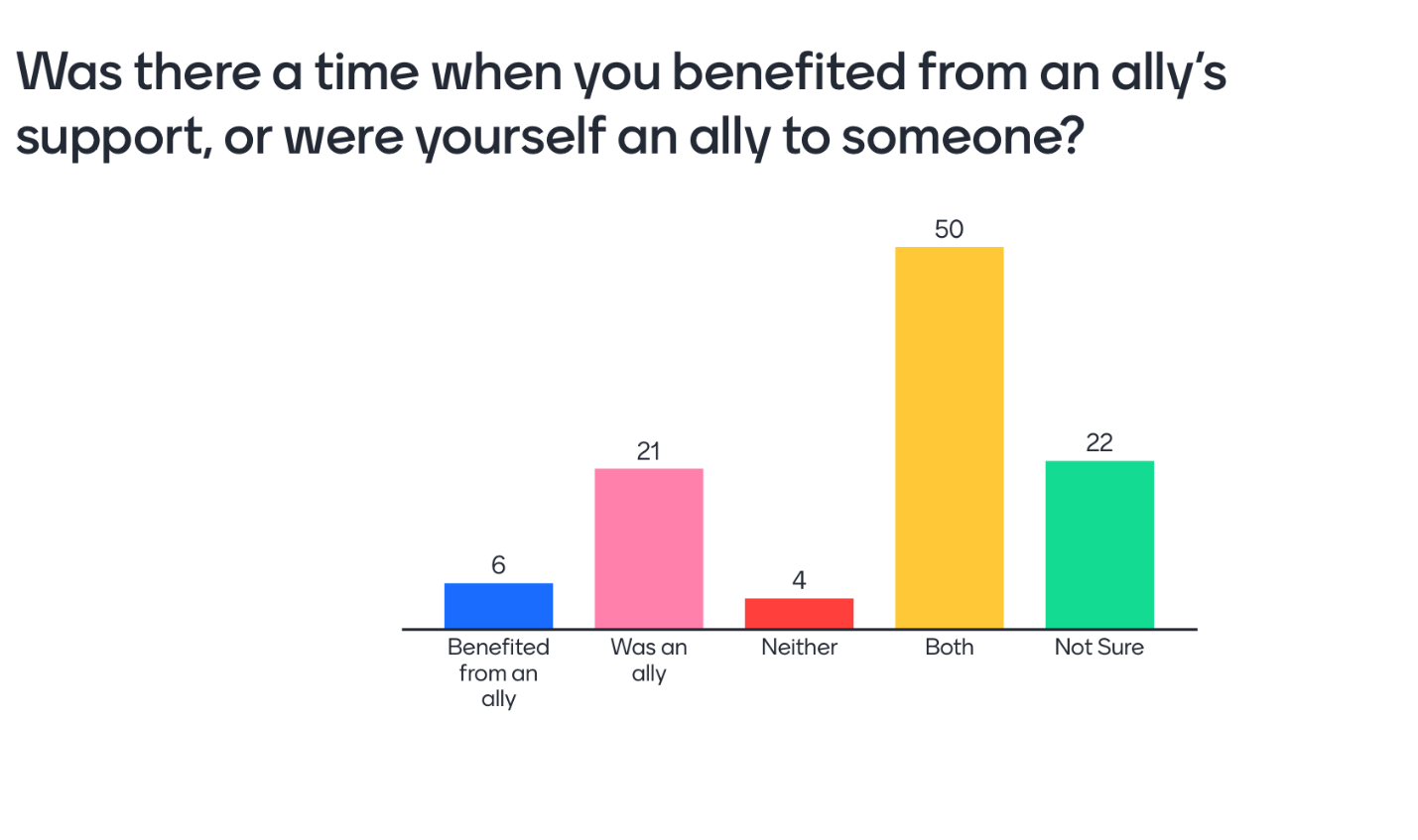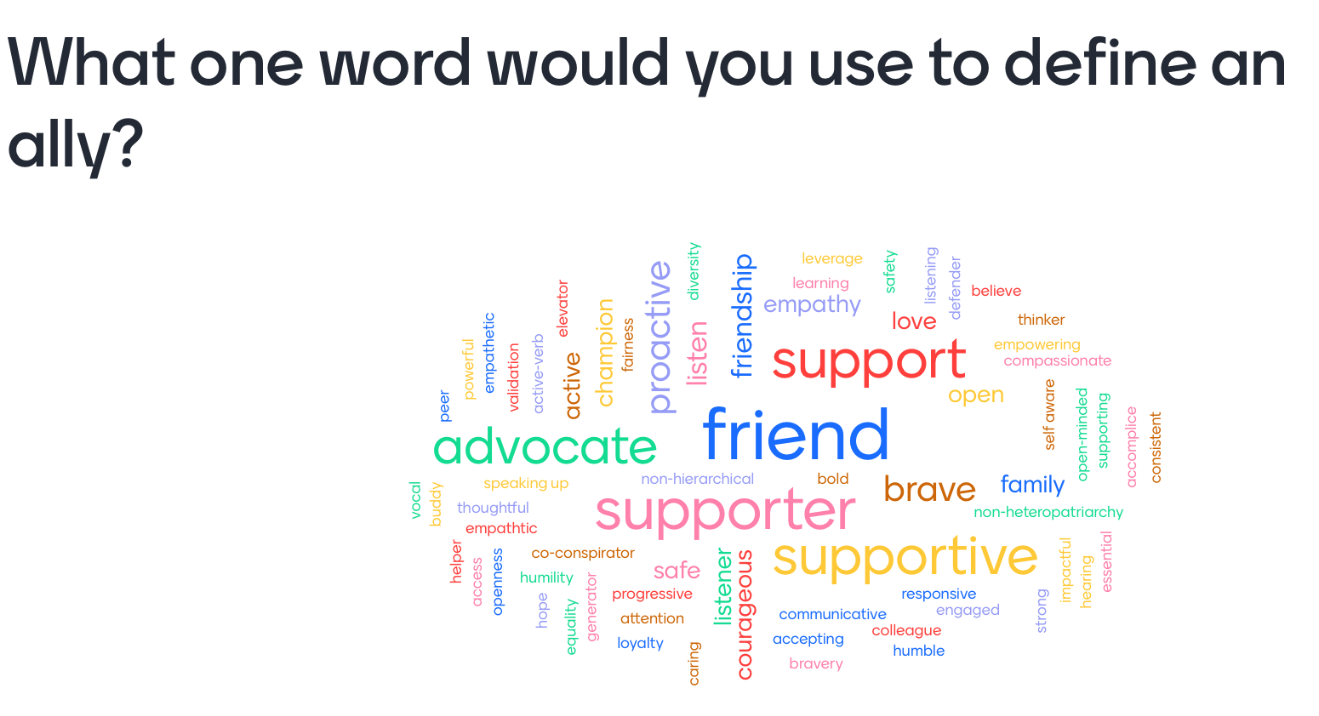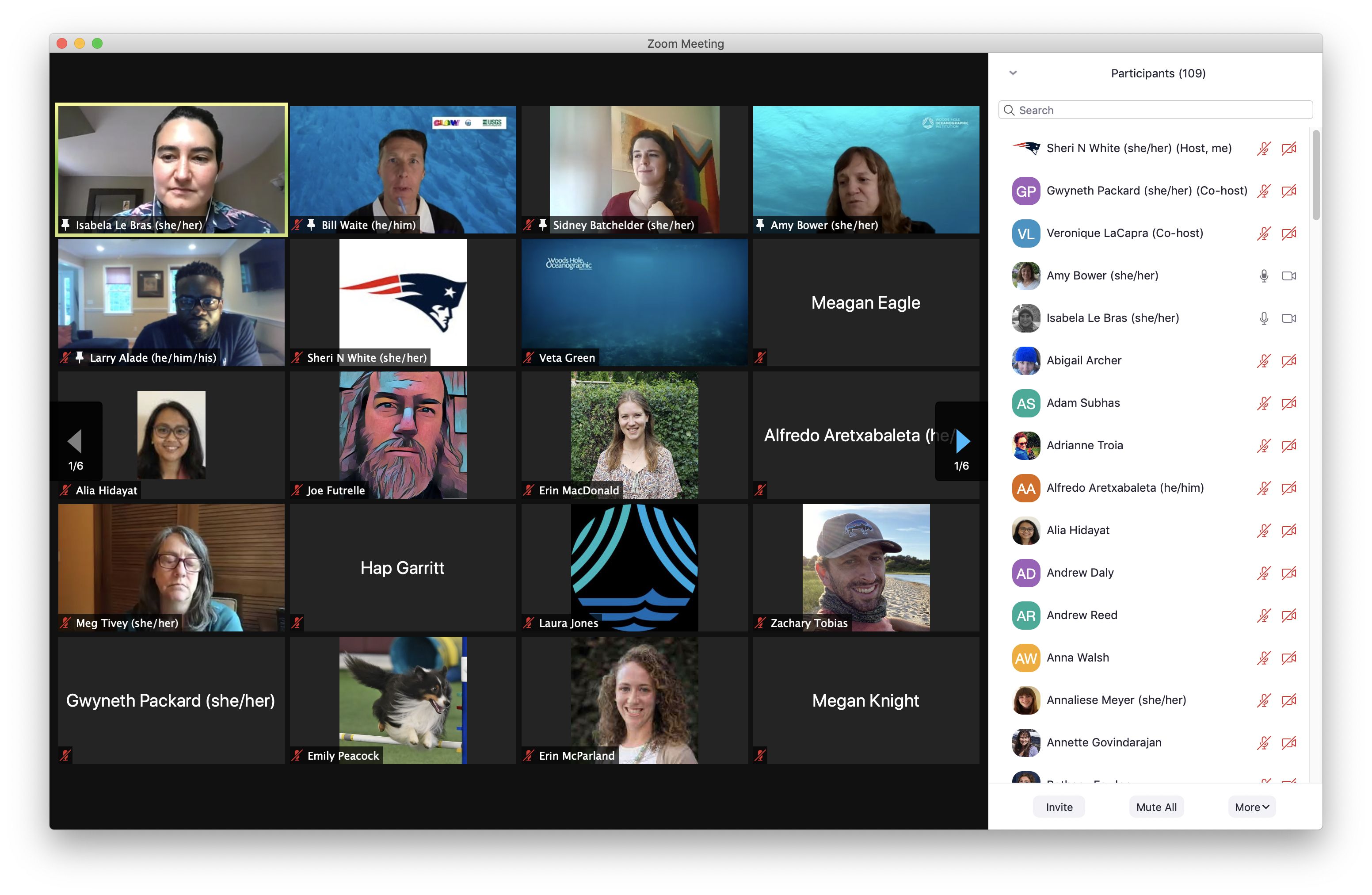2021 Allyship Panel Discussion
June 4th GLOW & CDEI co-hosted an Allyship Panel in honor of Pride Month and the upcoming Juneteenth. We had over 130 participants and a fantastic discussion with our panelists and audience.
We began with this video on What is Allyship and Why is it Important? In just under three minutes, it frames what it means to be an advocate for marginalized groups.
Asked whether there was a time they either benefited from or provided allyship many of our audience members said both. Some were unsure or recognized having been an ally, and a few recognized having benefited from an ally while not identifying as an ally themself. It is sometimes hard to know when you have benefited from an ally working for you behind the scenes.

Our panelists spoke from their experiences, all having experienced being lower in the power structure during some encounters and having had some power in other situations. The panelists represented several aspects of diversity in background (racial, gender, sexual minority, and ability), career, and seniority. All spoke of the importance of leadership setting the tone, creating psychological safety, and creating a culture of good behavior where all voices are valued.
Some interesting points:
- “Ally” is a verb, and being a good ally is an active role that requires growth and learning from mistakes
- Be brave, being willing to make mistakes & learn is better than doing nothing at all
- What helps marginalized groups helps everyone on a team
- Plan in advance, build relationships and know ahead of time how to help
- Educate yourself and make relationships
- Allies stand next or behind but not in front of the people they are supporting
Strategies:
- Be mindful of who makes a point and bring conversation gently back to them
- Eg. “Jill made that point earlier. Do you have anything to add, Jill?”
- Focus on each other’s humanity and shared ground
- Eg. If a gay man says “my husband and I went to a bbq” and you get hung up on “my husband” you can always connect on “went to a bbq”. Ask about the food if you aren’t comfortable asking about his husband.
- If you can’t speak up, speak across
- Speaking with peers about a situation helps alleviate isolation as well as helping to form strategy and change the power balance.
- Work on inclusion
- Eg. establish code of conduct for meetings and insist that resources be accessible to every team member
- Create the expectation of good citizenship
- Do not let the power structure mask unacceptable behavior
In closing, we asked the audience to choose a word to define an ally and this is what they said.

For further discussion, we offer the following resources on our committee sites:
And from around the web:
- 3 ways to be a better ally in the workplace (TED talk; 9:38 min)
- 5 Tips for Being a Good Ally (3:31 min)
- Performative Allyship (1:50 min)
- Bettina Love on Allyship & Co-conspiratorship (5:42 min)
We hope you will join us for a WHOI Communi-Tea sponsored by GLOW and the Workplace Climate Committee later this month where we will hold small group discussions to dig deeper into the topic of allyship. Watch this space for further details.
